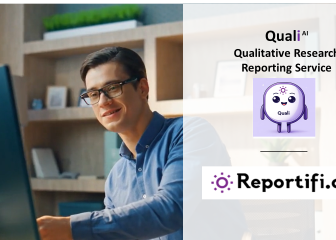
Introduction: Ethical considerations are the cornerstone of responsible market research. They not only protect the rights and well-being of participants but also ensure the integrity and credibility of the research process. In this post, we’ll explore key ethical principles and best practices that should guide market research activities. We’ll also discuss how tools like Reportifi.ai incorporate robust data privacy and information security policies to safeguard participant data and maintain research integrity.
Ethical Principles in Market Research
Ethical market research is guided by several fundamental principles that ensure research is conducted with respect for participants and adherence to professional standards.
- Informed Consent:
- Clear Information: Participants must be fully informed about the nature, purpose, and potential risks of the research before they agree to participate.
- Written and Verbal Consent: Obtaining written consent is essential, and providing a verbal explanation ensures that participants understand what they are agreeing to. If recording and/or transcribing the interview, you should receive consent from the participant to allow you to record/transcribe the discussion for reporting purposes only.
- Ongoing Consent: Consent is not a one-time event. Researchers should check in with participants periodically, especially in long-term studies, to ensure they remain comfortable with their involvement.
- Confidentiality and Anonymity:
- Data Protection: Protecting participant data is critical. Researchers must use secure methods to store and transmit data, ensuring that it cannot be accessed by unauthorized parties.
- Anonymizing Data: Personal identifiers should be removed or masked to protect participant anonymity, especially when reporting findings.
- Confidential Reporting: When sharing research findings, it’s important to ensure that individual participants cannot be identified from the data presented.
- Non-Deception:
- Justify the Need: Deception should only be used when absolutely necessary for the validity of the research, and it must be justified with ethical oversight.
- Minimize Impact: When deception is employed, its potential impact on participants should be minimized. Participants should be debriefed afterward to explain the true nature of the research and its purpose.
- Minimizing Harm:
- Risk Assessment: Researchers must conduct a thorough risk assessment to identify potential harms to participants and take steps to mitigate them.
- Support Mechanisms: If research topics are sensitive or could cause distress, researchers should provide access to support services or referrals.
- Ethical Research Design: The design of the research should prioritize participant well-being, avoiding any unnecessary discomfort or risk.
- Integrity and Transparency:
- Accurate Reporting: Findings should be reported honestly, without manipulation or selective reporting to fit a desired narrative.
- Disclosure of Conflicts: Any potential conflicts of interest should be disclosed to maintain transparency and trust in the research process.
- Open Communication: Researchers should maintain open lines of communication with participants, allowing them to ask questions and receive feedback throughout the research process.
The Role of Reportifi.ai in Ensuring Ethical Research
In today’s digital age, where vast amounts of data are collected and analyzed, maintaining data privacy and information security is more important than ever. Reportifi.ai is committed to upholding the highest standards of data privacy and information security, ensuring that all research conducted using its platform adheres to ethical principles.
Data Privacy and Information Security Policy:
- Data Encryption: All participant data collected and stored on Reportifi.ai is encrypted to prevent unauthorized access and ensure confidentiality.
- Anonymization Tools: Reportifi.ai provides tools to anonymize data, allowing researchers to remove personal identifiers and protect participant identities in their reports and presentations.
- Compliance with Regulations: Reportifi.ai complies with global data protection regulations, such as GDPR , ensuring that data handling practices meet the highest legal standards.
- Access Control: Strict access control mechanisms are in place to ensure that only authorized personnel can access sensitive data, further safeguarding participant information.
- Regular Audits: Reportifi.ai undergoes regular security audits to identify and address potential vulnerabilities, maintaining the integrity of the data and the research process.
See Reportifi.ai’s privacy policy here.
Conclusion
Adhering to ethical principles and best practices in market research is essential for protecting participants, maintaining the credibility of the research, and ensuring that findings are accurate and trustworthy. Tools like Reportifi.ai support researchers in upholding these standards by providing robust data privacy and security measures, enabling ethical research practices from data collection through to the final report. By integrating these ethical considerations into every stage of your research, you can contribute to a more responsible and transparent research environment that respects and protects the individuals who make it possible.



